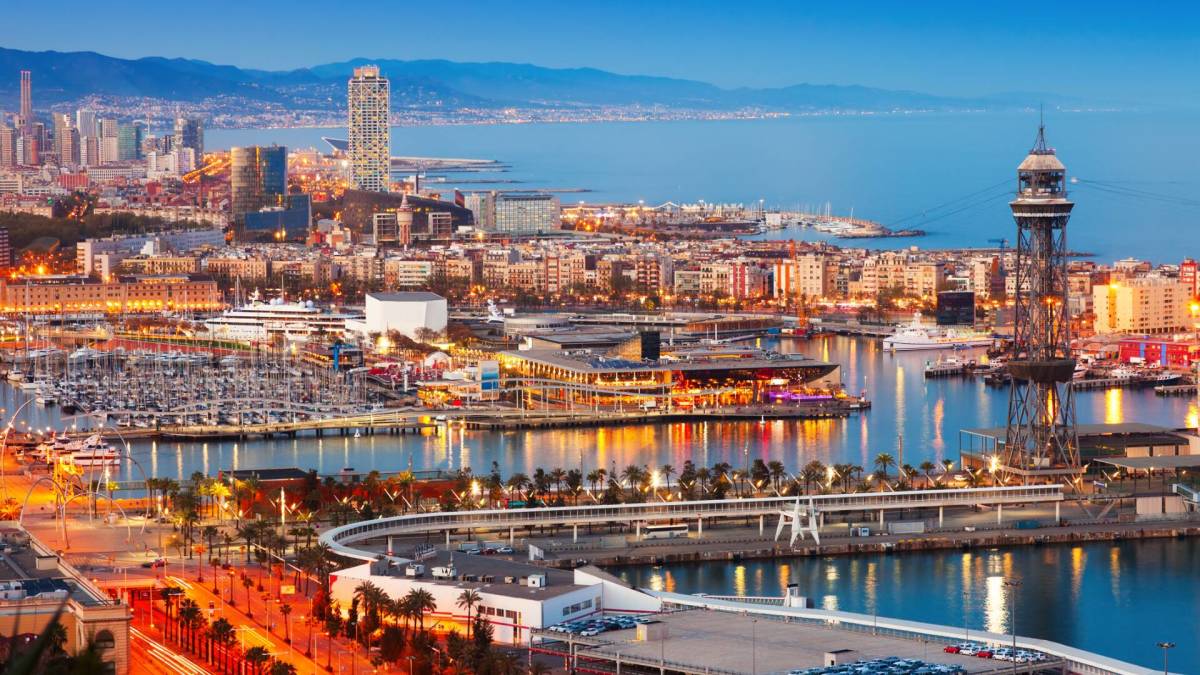
Over the last five years, several European cities have been struggling to control the overcrowding that comes with spiking numbers of tourists.
As part of an effort to encourage visitors to come during less-popular days, the Italian city of Venice just concluded a "social experiment" in which it charged all visitors older than 14 coming into the city for the day on certain weekends in June and July five euros ($5.34 USD). A more common strategy is to add an additional "tourism tax" to one's hotel or Airbnb (ABNB) bill or charge an arrival fee at the airport.
Related: Another popular vacation destination is charging tourists an arrival tax
But even with such measures, tourism numbers continue to grow and in some cases fuel resentment amid locals. In Barcelona, protestors yelling "tourists go home" while squirting water at those sitting at outdoor cafes in the city's popular areas earlier in July made international headlines as an example of escalating tensions.
World's largest cruise association sounds the alarm on tourist-phobia
While the attention around the protests could give the false impression about their power and frequency (the vast majority of those coming to Barcelona or Spain in general report having a fabulous time), the world's largest cruise line trade association said it is keeping its eye on rising tensions over high living costs that many associate with tourists in some destinations.
More Travel:
- A new travel term is taking over the internet (and reaching airlines and hotels)
- The 10 best airline stocks to buy now
- Airlines see a new kind of traveler at the front of the plane
"Tourism-phobia is not only a problem in Spain, but also in France and other Mediterranean countries, but visitors are increasingly sensitive and the scenes that have been seen in places like Barcelona have an impact on the reputation of the destination," Cruise Lines International Association (CLIA) Marie Caroline Laurent told reporters during a visit to Madrid on July 16.
The CLIA said that only 4% of the visitors arriving in Barcelona come from cruise ships but that the reputation of cities like Barcelona and Mallorca (a Spanish island that recently saw its own anti-tourism protests) could push companies to rethink their itineraries rather than have to address customer concerns of whether they will be welcome.
Related: Cruise tips, tricks and hacks from an expert cruiser
'Lead to cancelations and dissatisfaction among tourists'
Cruise ship companies like Norwegian (NCLH) and Royal Caribbean (RCL) run some of the largest numbers of sailings with stops in Barcelona. Saudi Arabia, in turn, has been pouring significant funds into its tourism industry to promote ports like Jeddah as a cruise stop that it wants the large companies to pick up.
"As dialogue with the city council of Barcelona, for example, is complicated, it will result in cancelations and dissatisfaction among tourists," the CLIA said further.
The CLIA further said that Spanish authorities could take a page out of Saudi Arabia's books and promote "other attractive cities" like Ferrol, Alicante, Cartagena and Cádiz as cruise ship port stops.
The CLIA feels that being able to diversify stops in this way would both alleviate the pressure from major ports like Barcelona and keep the tourism industry that Spain is so dependent on going. The latest economic forecasts predict that tourism will make up 17% of Spain's GDP by 2034 (an increase from the current 13%.) Last year, tourism also contributed to more than 70% of the country's economic growth.







